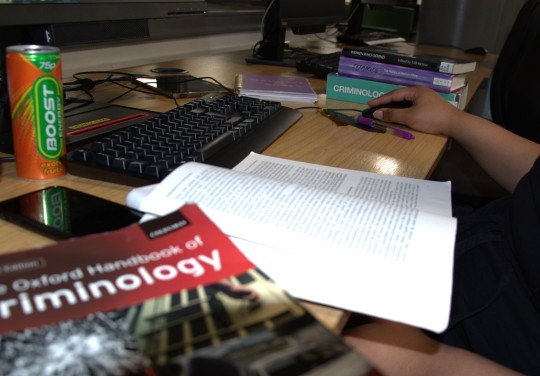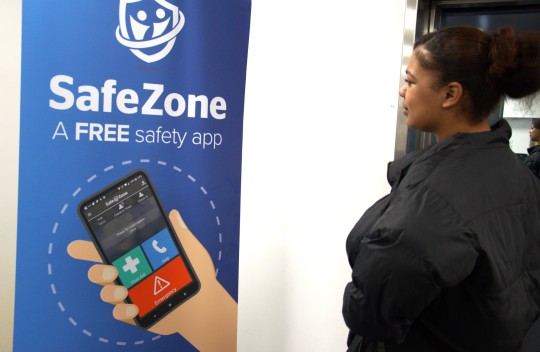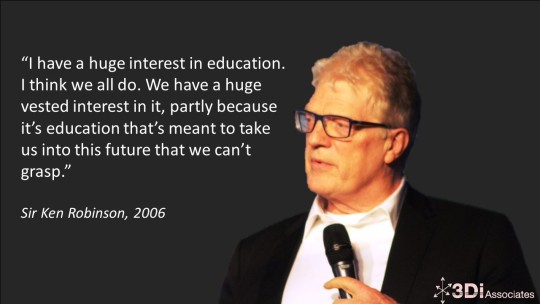#high stakes exams and mental health
Note
hello, hope ure doing well :D may i please request an akaashi fic where the reader is going thru grief of the passing of their mother and can’t focus in class leading onto low grades for their semester exam making them feel even worse bc that’s not what their mom wants (reader always gets good grades) and reader feels like a disappointment and just breaks down one day?? i’m so sorry if this is too specific, just finding it hard to cope and no one understands!! thank you so much <3
ANON I AM SO SORRY THIS TOOK SO LONG, but I have literally been dealing with exactly what you requested (still am, but now I'm on reading week so :P). And since I'm literally writing this immediately after a rough grieving session of my own, I feel like now I can tackle it and do it justice. bc... as someone who also used to get good grades before my mom died then started almost failing everything after... this hits hard!!
And just another little side note, I'm so sorry for your loss. if you ever want to reach out to talk to someone who's going through the same thing, my inbox or my messages are always open <3 dead mom club solidarity !! thank you so much for your request, anon and again i'm SO sorry this took so long.
{Grades and Grief- Akaashi}
warnings: death of mother (mentioned and focused on, no descriptive details), depression/grief, anxiety, this counts as hurt/comfort right? fluff and lots of support from akaashi. university life needs to be a warning tbh so its here.
gn!reader, timeskip!akaashi (except it's more like, in between the time skip cause it's university)
~~~~~~~~~~~~~~~~~~~~~~~~~~~~~~~~~~~~~~~~~~~~~~~~~~~
your heart dropped as you opened your emails and saw that the grades for your midterms had been posted.
on one hand you were hopeful. maybe you did better than you expected? maybe you would open up the online portal and see that you passed. just a pass, that's all you were hoping for at this point.
you ignored the way your stomach twisted at the fact that all you wanted was a pass. you used to be at the top of your classes in high school, and now you were barely scraping by.
but deep down you knew it would be a failing grade. it was getting impossible to hope for anything better. you could barely find it in yourself to go to class some days, let alone actually study. it required more brain power than you could expend.
and on the days you did go to class, you felt like a zombie. mindless, lethargic, stupid. definitely not in any condition to take notes that were good enough to aid you.
you opened the email and sighed. another fail. you tried to convince yourself that you'd do better next time. that you'd start studying earlier, you'd go to your professor's office hours and ask questions, you'd do the work that needed to be done.
your future was at stake, why couldn't you just put in the the work-
this was one test in one class. there would be other chances to raise your grade.
breathe.
how many times can I keep telling myself that before I stop believing it? before it becomes an empty promise?
breathe. you'll be okay.
it's self-sabotage, how much longer can I just stay like this? mom wouldn't have wanted this for me. she'd want to see me succeed. I'm such a-
breathe.
you tried to do exactly what your boyfriend kept telling you: be kind to yourself. "you're grieving the death of someone who was supposed to be there your whole life. the one person you never thought would leave. it's completely natural to be struggling with your mental health right now. don't be mean to yourself." is what he had said. "take the time to feel what you need to feel, bottling it up will only make it worse."
you sighed and curled yourself into a ball on your bed. you were finding it hard to breathe.
feel what you need to feel, huh? when was the last time you had a good cry session, anyway?
the tightness in your chest only grew as you started to tear up. you tried to keep the thoughts of being a disappointment to your mother away, but you glanced at the picture of her smiling face on your nightstand and winced.
if she could see you know, you wondered if she would be angry or comforting.
grieving was one of the loneliest experiences anyone could ever deal with. unique to each person, not one person to share the same memories with, becoming acutely aware of your own timeline. and not something that happens often to young people. none of your friends understood. they could try, but they'd never get it. and sometimes you felt like they didn't even care enough to attempt it.
you've never felt more alone and you've never been more aware of it.
"and if you ever need comfort, I don't know how much help I'll be, but I'm always here to listen. it's never going to be too much."
so instead of dwelling on it, you picked up your phone and called the one person who would.
it took three rings for akaashi to pick up.
the smile in his voice immediately soothed you. anything related to your boyfriend felt like a blanket to you. comforting, warm and soft. "hello, my love, to what do I owe the pleasure?"
you sniffed and tried to get some words out without choking up. "keiji," his name came out pitifully.
"oh sweetheart, what's wrong?"
"can you come over, please? I need you."
"of course I can, I'll be right there. I love you."
"I love you, please be careful."
the second you hung up the phone, you let more tears fall freely. you didn't even know what you were crying about anymore, there were so many emotions mixed up inside you. but for some reason you didn't want to fully let loose while you were alone. you wanted comfort when you were at your most vulnerable- comfort and validation you weren't capable of giving yourself in that moment. there was only one other person who could give you that now.
while you waited, you thought more about your mother. it really wasn't fair that you had to lose her, why did she have to go? it didn't matter how long it had been since she passed, this type of pain will be everlasting, you thought.
ten minutes later you heard the door to your apartment unlock and you got up to greet him. he had a bunch of bags in his arms that he set down the minute he saw you walk out of your room.
he held his arms open and you crashed into him immediately. finally you felt safe enough to let the dam break. akaashi shushed you as you sobbed into his chest, rubbing your back gently and whispering soft affirmations into your ears.
"what happened, my love?"
"I- I failed another test," you hiccupped. "and I don't know what to do to help myself get out of this hole."
"oh dear... it's going to be okay."
he tenderly picked you up and carried you to the bedroom and you continued to cry into his shoulder. his heart broke at the sound of your whimpers.
once you were both settled comfortably on your bed, you took one of his hands and played with his fingers. "keiji, am I a disappointment?"
he shook his head before you could even finish speaking. "never."
"I just feel like I'm letting so many people down, myself included, but mainly my mom... her one request throughout my whole life was that I do my best in school. and now I'm failing and I can't help but think-" your voice cracked and he cupped your cheek with his other hand.
"baby, look at me. you are not a disappointment, okay? you are so far from that ever even being a possibility. and she would be so proud of you."
you looked up at him and your eyes widened. "but I'm not living up to her expectations-"
"you're doing your best. she would understand that."
"I'm not, though!" a flash of red hot anger ran through you. "I'm not doing my best! If I were doing my best, I'd be passing. I'd be studying, paying attention in my classes and not just staying in bed. not just staring at the ceiling and dissociating for hours when I need to be working on assignments. I'm not doing my best and I don't know how to fix it!" instead of getting upset at you for blowing up, he just listened to what you were saying.
as you got up to pace the room, you kept ranting. "I know something needs to change, I can't keep going on like this, but it's like I'm stuck, keiji, I don't know what to do and I'm so angry. and I'm tired, exhausted, actually. I hate this, I feel useless. I'm in limbo. I don't know why I can't force myself to change, but I'm absolutely not doing my best."
true anger wasn't an emotion you felt often before your mom died, but now you were well acquainted with it. you thanked your lucky stars you scored a partner as patient as akaashi.
"have you considered that you're doing the best with what you have right now?"
you paused and looked at him. "what?"
he shifted and took your hand. "my love, you've been through something extremely traumatic. you've told me before that you've been in survival mode for a very long time now. that's not your fault. you can't control it on your own. keeping that in mind, you absolutely are doing your best. you get up and keep going everyday. even though it scares you. you're still kind, and actively striving to be a good person. this rough patch is temporary, everything will be okay. she would be proud of you for everything you've overcome so far."
you bit your lip and looked down, shaking your head. "what if this is 'my best' forever? what if I'm not capable of changing anymore?"
"anyone is capable of change at any given time, my love, you're the one who told me that. I promise you, everything will be okay. and besides," he tugged your hand to guide you onto his lap. "the willingness to change and not just refuse to heal is there."
"but what if it takes too long?"
"it won't. there's no such thing as too long, everyone's healing process is different. and you have me by your side as well, ready to help however you need." he finished his speech with a kiss to your nose and you smiled a bit.
"...thank you, keiji. I love you."
"I love you too, dear. I'll be here as long as you'll let me."
"forever, if that's alright with you?"
"of course, my love." his arms tightened around you.
"can we stay like this for a bit longer?"
"mhmm, you've had a big day. we can cuddle for as long as you need."
you buried your face into the crook of his neck and planted a few kisses. "I love you,"
he kissed the top of your head. "I love you too, sweetheart."
you repeated the phrase over and over again, smiling a little wider each time he returned the sentiment with a kiss to your face.
"can I ask you one more thing?"
"go ahead."
"are you proud of me despite me failing so much this year?"
"I'm so proud of you, baby. nothing would ever change that."
looking up at him with wide eyes, he just smiled and leaned down to kiss your lips. "so proud of my baby. always trying their best. so sweet, so kind, just needs to be loved on a little extra sometimes. all mine."
a happy sigh was released, and with it, most of the tension in your body, so you rested against your boyfriend. "all yours."
you felt a lot better now. not perfect, and still uncertain about some things, but at least with akaashi there you knew you didn't have to go it alone.
~BONUS SCENE~
after a while of cuddling in bed, a thought hit you and you shot up, obviously in a clearer, less fuzzy state of mind.
"love, what were all those bags you had earlier? did you stop somewhere before you came?"
his eyes widened a bit and a blush spread over his cheeks. "yes and no. uh... before you called, I was actually picking us up some food and other things for a stay-in date night. I was planning on surprising you today."
you could have burst into tears again at how cute his confession was. "keijiiiii, you're so sweet!" you ran your fingers through his hair a bit and he melted into the touch. "what a sweet boy I have," you cooed.
he made a noise of protest and you giggled. "can we go see what you bought? please?"
he nodded and smiled at you. he was so glad you seemed to be in better spirits now. there wasn't anything akaashi keiji wouldn't do to see you happy.
~~~~~~~~~~~~~~~~~~~~~~~~~~~~~~~~~~~~~~~~~~~~~~~~~~~
this was literally just me projecting holy shit. that was really a look inside my brain, wow. but anon I hope you enjoyed it!! and I hope it was worth the wait, I'm so so so so sorry it took so long. this is the first thing I've managed to write in a while (and I wrote this all in one sitting!!). But the ask was very therapeutic for me, I really need this type of validation :'D
#akaashi x reader#akaashi keiji x reader#akaashi keiji fluff#akaashi x reader fluff#akaashi x reader angst#akaashi keiji angst#haikyuu fluff#haikyuu x reader fluff#haikyuu x reader angst
101 notes
·
View notes
Text
hi :) - 9.19.23
Hello, my name is Presley. I am 20 years old, and I am currently in my first semester of law school.
I am also extremely mentally ill. I was diagnosed with severe clinical depression in the 9th grade, having dealt with suicidal ideation since the 5th grade. I am a suicide attempt survivor, and I have been on mood stabilizers ever since. I was also diagnosed with ADHD a few months ago.
Due to my mental health issues, life hasn't been particularly easy for me, especially when it comes to basic life skills like time management and the ability to accomplish basic tasks.
I finished at the top of my class in high school and kept a high gpa in undergrad simply because I am smart, not because I applied myself and worked super hard. I am a terrible procrastinator. My brain can only start working on something if there is an impending deadline, and even then I still struggle to do it.
As you might have already inferred, those habits don't fly in law school. In law school, you have one exam at the end of the semester worth 100% of your grade, built on ALL the material you learned throughout the semester (and you learn A LOT of material in law school). There is no way to cram right before your exam. You must manage your time wisely throughout the semester to stay on top of your work and ensure you have a good handling on the material before you move on.
I am currently struggling to do just that. I am six weeks in, and I am massively behind. Executive dysfunction is very real and it is crippling. I struggle with simply starting a task, and finishing it is a completely different beast.
My brain loves to hyperfixate on things, and 9/10 it is not the thing I need to be focused on. As a result, I will have a laundry list of things I need to do, but find myself unable to do them because I am only focused on that one thing.
However, my brain also says that I must get everything on my to-do list done before I can call it a night. Therefore, I will lose sleep and STILL not get anything done. I was recently awake for almost 48 hours because I told myself that I couldn't sleep until I checked off everything on my to-do list. By the time I finally gave in to exhaustion, I had yet to do anything on it.
It is also extremely difficult for me currently to perform even basic life functions. I've already missed several classes because I simply couldn't find the energy to get out of bed. When I do, I feel like I've run a marathon before I even walk out the door just from waking up and getting dressed. By the time I get out of class, all my energy has disappeared. It takes everything in me just to feed myself at least once a day (and I usually love to eat). When it comes time for me to do work, I am absolutely drained, and my work seems so overwhelming and unapproachable.
All of these things have caused me to be extremely behind on school work, and that is a difficult thing to sit with. Especially when you need to do well because you still have to graduate undergrad, and you have scholarships you need to keep.
It also doesn't help when everyone else around you seems to be well prepared and fighting for the top spot. It makes you begin to wonder if you're even cut out for it, even though this is something you want more than anything else in your life.
Please don't worry about me though. This isn't my first rodeo. I've been dealing with these issues for the past 8 years, it's just that the stakes are much higher right now. I am in therapy, I am taking my medicine, and I have a wonderful support system of family and friends. After everything I've been through, I believe in myself enough to say that I will make it out on the other side, and I will finish this semester strong. I'm just going through a rough patch :)
I am simply here because I would be writing these things down in my personal, private journal anyway, but I want to share them in hopes that they reach someone who needs them. I've made it my mission since I was finally diagnosed in the 9th grade to help break the stigma around mental illness and mental health issues. I want people like me to know that they are not alone in this, because I want to know the same. I also want them to know that feeling these feelings is nothing to be ashamed of and that it's okay to ask for help, because I would be six feet under right now if I had never realized that and gotten the help that I needed.
If you're going through some tough times, just know that I'm sending so much love your way and that I believe in you. You're doing awesome with the hand you were dealt! <3
.
.
.
.
.
Me:

Also me but from today:

#mental health#mental illness#law school#law student#wellbeing#self care#journal entry#blog#adhd brain#anime#fanfic#hyperfixation#brainrot#mental health matters
3 notes
·
View notes
Text




Fighting the Brain: Mental Health Problems among Students in UK Universities
The Way Final Exam Pressure Is Affecting All Students in the UK.
By Maria Francisco
University life is often portrayed as a time of personal development, intellectual challenge, and social engagement. Nevertheless, underneath all this there is a severe problem with students’ mental health. Student mental health has become a pressing matter within universities across the United Kingdom due to increased academic pressures, financial constraints, and social difficulties.
Recent research has depicted an upsurge in the incidence of psychological illness among university students. Over 25% of students experience mental illnesses during their stay at institutions of higher learning. This shocking figure is indicative of enormous stress that affects students particularly as final exams approaches.
A Case Study: Emma
Emma, a second-year psychology student at Wolverhampton university has challenges that are faced by many other students. As her final exams approached, pressure started overwhelming Emma leading to tension and nervousness. To receive perfect grades, she tirelessly remained in library reading textbooks and lecture notes for many hours.
"Balancing my private life and the struggles of keeping up with all my work has literally driven me insane at this point” she shared during our interview. "The pressure is crazy and it's easy to feel overwhelmed. I've had to make sure I take as many breaks as I can, seek support from friends and family, and even meditate at times to manage my stress and anxiety."
She believed that it was an “endless cycle”.
Emma’s experience is not uncommon. Across the UK, students are similarly facing overwhelming feelings of stress and anxiety. The pressure to succeed academically and fear of failure creates an environment ripe for mental health problems.
Mental and physical health of a student can be affected by this stress associated with exams. High levels of stress may cause mental disorders such as anxiety, depression among others. In addition, there may be physical symptoms like headaches, disturbed sleep or reduced immunity that result from stress. These symptoms can become crippling, influencing their academic life as well as general well-being.
The gravity of this issue is now well appreciated by universities and as a result, they are increasingly putting in place different measures to support the mental health of their student populations. There are many different solutions now in place such as counselling services, stress management seminars and campaigns for creating awareness about mental health. Despite such efforts, there is often more demand for mental health help than the available resources can provide, hence leaving some students with no assistance.
One innovation that bears promise is teaching university students about mental well-being as part of the curriculum. By enlightening the youths’ minds about psychological matters including resilience and coping strategies in times like this one when stress levels are high around them,
The tale of Emma along with other students I spoke to although upsetting also indicates the resilience and determination of many pupils. Academic pressure, however, is something students can withstand with proper care and guidance. It is important for universities to always remember that every student’s experience is different as they continue to tackle the mental health crisis. Tailored approaches that consider unique needs and circumstances will be necessary in creating a healthier educational environment.
Universities like Wolverhampton have said they want to guide people like Emma by prioritizing mental health and make sure support structures are in place so that they can succeed academically. The journey towards an improved student mental health is not easy but over time it becomes worth embarking on considering every student’s stake involved if at all anyone wants to have better results to show for it.
0 notes
Text
Dealing with Exam Stress: Coping Mechanisms for IAS Aspirants
Introduction: Embarking on the journey to become an IAS officer is no small feat. It requires dedication, perseverance, and a strong mental resolve. However, along this path, aspirants often encounter one formidable obstacle: exam stress. The pressure of preparing for the IAS exam can be overwhelming, but there are coping mechanisms that can help navigate through it.
Understanding Exam Stress: Exam stress is a common phenomenon experienced by students across the globe. It manifests as anxiety, nervousness, and fear of failure, especially when facing high-stakes examinations like the IAS. The sheer volume of syllabus, the competitive nature of the exam, and the weight of expectations can take a toll on the mental well-being of aspirants.
Coping Mechanisms:
Effective Time Management: Break down your study schedule into manageable chunks. Prioritize topics based on their importance and allocate time accordingly. Setting realistic goals and adhering to a structured study routine can help alleviate stress.
Healthy Lifestyle Choices: Maintain a balanced diet, exercise regularly, and ensure an adequate amount of sleep. Physical well-being is closely linked to mental health, and adopting a healthy lifestyle can boost concentration, memory, and overall cognitive function.
Mindfulness and Relaxation Techniques: Incorporate relaxation techniques such as deep breathing exercises, meditation, or yoga into your daily routine. These practices promote relaxation, reduce anxiety, and improve focus, helping you stay calm and composed during stressful situations.
Seeking Support: Don't hesitate to reach out for support from friends, family, or mentors. Sharing your concerns with others can provide perspective, encouragement, and emotional reassurance. Joining study groups or online forums can also foster a sense of community and camaraderie among fellow aspirants.
Positive Self-Talk: Cultivate a positive mindset and challenge negative thoughts. Remind yourself of your strengths, past achievements, and the progress you've made in your preparation. Adopting a growth-oriented approach can instill confidence and resilience in the face of challenges.
Conclusion:
Navigating through exam stress is an integral part of the IAS preparation journey. By implementing these coping mechanisms, aspirants can effectively manage stress, maintain mental well-being, and optimize their chances of success in the IAS exam.
For aspirants seeking comprehensive guidance and support in their IAS preparation journey, consider enrolling at PM IAS Academy in Coimbatore. With experienced faculty, personalized coaching, and a proven track record of success, PM IAS Academy is committed to empowering aspirants to achieve their goals and excel in the IAS exam. Visit our website or contact us today to learn more and take the first step towards realizing your dream of becoming an IAS officer.
0 notes
Text
The Importance of Mental Well-being in 11 Plus Exam Preparation

In the high-stakes world of 11 Plus exam preparation, maintaining mental well-being is not just beneficial—it's essential. The pressure and stress associated with exam preparation can take a toll on students' mental health, impacting their ability to perform optimally on test day. Therefore, prioritizing mental well-being alongside academic studies is crucial for ensuring that students are able to approach the exam with a clear and focused mind, maximizing their potential for success.
One of the most important aspects of maintaining mental well-being during 11 Plus exam preparation is prioritizing self-care activities. Engaging in regular exercise not only helps to reduce stress levels but also improves mood and cognitive function. Whether it's going for a run, practicing yoga, or taking a brisk walk outdoors, finding ways to incorporate physical activity into one's daily routine can have a profound impact on mental well-being.
In addition to exercise, ensuring adequate sleep is essential for supporting overall well-being and reducing stress levels. Sleep plays a crucial role in cognitive function, memory consolidation, and emotional regulation—all of which are essential for effective exam preparation. Therefore, students should aim to establish a regular sleep schedule and create a relaxing bedtime routine to promote restful sleep.
Furthermore, maintaining a healthy diet is essential for supporting mental well-being during exam preparation. Eating a balanced diet rich in fruits, vegetables, whole grains, and lean proteins provides the nutrients necessary for optimal brain function and energy levels. Avoiding excessive caffeine, sugary snacks, and processed foods can help prevent energy crashes and mood fluctuations, ensuring that students are able to maintain focus and concentration throughout their study sessions.
In addition to physical self-care, practicing mindfulness techniques can promote relaxation and emotional resilience during exam preparation. Mindfulness techniques such as meditation, deep breathing exercises, and progressive muscle relaxation can help students manage stress, reduce anxiety, and improve concentration. By incorporating these techniques into their daily routine, students can cultivate a sense of calm and balance that will serve them well on test day.
Moreover, spending time in nature has been shown to have a positive impact on mental well-being, reducing stress levels and improving mood. Whether it's taking a hike in the countryside, going for a swim at the beach, or simply sitting in a park and enjoying the sights and sounds of nature, spending time outdoors can provide a much-needed break from the pressures of exam preparation and help students recharge both mentally and physically.
In conclusion, maintaining mental well-being is crucial for effective 11 Plus exam preparation. By prioritizing self-care activities such as exercise, adequate sleep, and healthy nutrition, practicing mindfulness techniques, and spending time in nature, students can approach the exam with a clear and focused mind, maximizing their potential for success. Remember, taking care of your mental well-being is not just important for exam preparation—it's essential for leading a happy, healthy, and fulfilling life.
0 notes
Text
What is wrong with the Indian education system?
The Indian education system has its share of challenges that often get debated. One prominent concern is the heavy emphasis on rote learning. The system tends to prioritize memorization over critical thinking or practical application of knowledge. This approach can stifle creativity and innovation among students, focusing more on marks than actual understanding.
Another issue is the pressure-cooker environment surrounding exams. The importance placed on high-stakes exams, like board exams and entrance tests, creates immense stress for students. This stress can lead to mental health issues and doesn't always reflect a student's true potential or skills beyond textbook knowledge.
Moreover, there's often a mismatch between the education provided and the demands of the rapidly evolving job market. The curriculum might not always be aligned with the skills needed in today's world, resulting in graduates who might struggle to find employment or apply their theoretical knowledge practically.
Efforts are being made to revamp the system, introducing more holistic and skill-oriented approaches, but these changes take time to implement on a larger scale. The Indian education system is undoubtedly striving to adapt and improve, but it's a work in progress, aiming to better equip students for the challenges of the modern world.
0 notes
Text
Beyond Standardized Testing: Redefining Success in Education

In the bustling landscape of education, standardized testing stands as a ubiquitous benchmark, a yardstick used to measure academic prowess and proficiency. Yet, as we tread deeper into the 21st century, the efficacy and impact of standardized methods of testing have come under scrutiny. This article delves into the multifaceted realm of standardized methods of testing, exploring its implications, challenges, and the evolving discourse on redefining success in education.
The Genesis
The origins of standardized testing can be traced back to the early 20th century, conceived as a means to ensure fairness and objectivity in assessing students’ academic abilities. However, what began as a tool for uniform assessment soon evolved into a cornerstone of educational evaluation, wielding significant influence over curriculum design, school funding, and student trajectories.
The Pros and Cons
Advocates of standardized methods of testing tout their ability to provide a measurable, consistent assessment of student performance across diverse populations. It’s often seen as a means to hold schools accountable, identify achievement gaps, and inform educational policy decisions. Yet, detractors argue that these tests can be inherently biased, fostering a “teach-to-the-test” mentality that narrows the scope of learning, sidelines creativity, and fails to capture the holistic abilities of students.
The Stress and Mental Health Impacts
A prevailing concern surrounding standardized testing is its impact on students’ mental health and well-being. The intense pressure to perform well on these high-stakes exams often leads to heightened stress levels, anxiety, and even a sense of inadequacy among students. This mental toll raises questions about the true efficacy of assessments that potentially compromise the emotional welfare of learners.
Equity and Diversity: Challenges in Assessment

Standardized testing has faced criticism for its failure to account for cultural and socioeconomic differences among students. Critics argue that these assessments may inherently disadvantage certain groups, perpetuating inequities rather than serving as an equalizer. Addressing the challenge of creating assessments that are fair and inclusive remains a critical aspect of reforming standardized practices of testing.
The Shifting Paradigm: Alternative Assessment Models
In recent years, there has been a groundswell of support for alternative assessment models that go beyond the confines of standardized testing. Performance-based assessments, portfolios, project-based evaluations, and competency-based measures have emerged as viable alternatives that aim to capture a broader spectrum of students’ abilities and aptitudes.
Redefining Success in Education
As discussions on standardized testing intensify, there’s a growing movement to redefine success in education. This shift involves embracing a more holistic approach to assessment—one that values critical thinking, problem-solving skills, creativity, emotional intelligence, and adaptability. Advocates argue that education should empower students not only with knowledge but also with the skills necessary to navigate an ever-changing world.
The Role of Technology in Assessment
Technology has paved the way for innovative assessment tools and methodologies. Adaptive learning platforms, AI-driven assessments, and immersive simulations offer a glimpse into the future of personalized, dynamic evaluations that adapt to individual learning styles and foster a deeper understanding of concepts.
Toward a Balanced Evaluation Framework
The way forward lies in striking a balance between standardized testing and alternative assessment methods. A hybrid approach that leverages the strengths of both traditional and progressive evaluation methods could potentially offer a more comprehensive, nuanced understanding of students’ capabilities.
Teacher Evaluations and Classroom Dynamics

Standardized testing often impacts teacher evaluations and classroom dynamics. Teachers may feel pressured to teach to the test, sacrificing innovative teaching methods and diverse curricular content for a more formulaic approach that aligns with test preparation. This approach may hinder the cultivation of critical thinking, creativity, and a passion for learning among students.
Economic and Social Implications
The emphasis placed on standardized testing can also have far-reaching economic and social implications. School rankings based on test scores may influence property values, district funding, and the perception of educational quality. Moreover, the focus on standardized tests can create a narrow definition of success, potentially undervaluing non-traditional pathways to learning and careers, such as vocational training or creative pursuits.
The Global Perspective
Standardized testing is not limited to one country or educational system. It’s a global phenomenon, with various countries adopting similar assessment methods. However, international comparisons through standardized tests like PISA (Programme for International Student Assessment) often oversimplify complex educational systems and cultural contexts, leading to misleading conclusions about the effectiveness of different approaches to education.
Parental and Community Engagement
The impact extends beyond the classroom, involving parents and communities. Concerns about the emphasis on testing may mobilize parent groups and educational advocates to push for reforms that prioritize a more comprehensive evaluation system focused on holistic student development.
Policy Reforms and Future Directions

Calls for policy reforms echo throughout educational circles, urging policymakers to reconsider the weight placed on standardized testing in educational decision-making. This momentum has led to legislative changes in some regions, advocating for reduced testing, increased flexibility in assessments, and a broader definition of educational success.
Bridging the Skills Gap
An evolving job market demands a diverse skill set from graduates. Rethinking assessment practices is crucial in bridging the gap between the skills taught in classrooms and those required in the professional world. A more inclusive evaluation framework could better equip students with the skills necessary for success in the workforce of tomorrow.
Ethical Considerations and Testing Industry
Critics also scrutinize the testing industry, questioning the ethics of profiting from high-stakes standardized tests. The influence of corporate interests in shaping educational policies and practices through standardized methods of testing raises ethical concerns about the prioritization of profit over educational quality.
Cultivating Lifelong Learners
Ultimately, the aim of education should be to nurture lifelong learners equipped with a diverse skill set, adaptability, and a passion for continuous learning. Reimagining assessment practices to foster a love for learning, curiosity, and a growth mindset is fundamental in preparing students for a rapidly changing world.
In the ongoing discourse on standardized testing, these diverse perspectives underscore the need for a comprehensive reevaluation of assessment practices. By acknowledging the limitations of and embracing a broader, more inclusive approach to evaluation, the educational landscape can evolve to better serve the multifaceted needs of learners and society at large.
Also Read: How AR in Education is transforming learning experiences?
#EducationRevolution#RedefineSuccess#AssessmentInnovation#FutureOfLearning#StandardizedTesting#CriticalThinking#HolisticEducation
0 notes
Text
Elevating Academic Success: How Clinical Psychology Can Improve Studies for Filipino Students
The implementation and the works of clinical psychologists in Cagayan de Oro city left a milestone of community and social services in improving young people's mental and physical improvements. Psychologically healthy students have higher chances of obtaining academic success, which is highly valued for better opportunities.
Clinical psychologists are crucial in providing psychological and emotional treatment to individuals and students. Their primary duty is to stabilize the community by providing solutions and relief to their psychological grievances. Let’s dive into how clinical psychologists in Cagayan de Oro help elevate students’ academic performances and success.
Understanding Academic Challenges Faced by Filipino Students
Students face various academic challenges and limitations in the Philippine education system, including limited resources, outdated or difficult curriculum, high-stakes exams, a lack of guidance and career counseling, socioeconomic factors, and more. These reasons lead to negative consequences that may cause stress or financial burden.
Students, in particular, will negatively impact their likelihood of obtaining opportunities for future success. Many of these factors still exist within the passing years and are given further attention to providing students with quality education and equal opportunities. Clinical psychologists in Cagayan de Oro have made initiatives to combat these issues.
Enhancing Study Skills and Strategies
For students to obtain academic success without feeling overwhelmed and pressured, it is important to enhance and optimize their study skills and education strategies to improve their learning experience. On the other hand, students also get to manage themselves better and learn to combat stress and school-related problems.
Enhancing study skills and strategies also helps motivate students to maintain their focus and set goals to stay engaged and committed to their academic studies. Students are more likely to be confident in achieving their goals. In the College of Medical Laboratory Science, for instance, it’s common for students to also develop their personalities to become excellent professionals in dealing with health-related concerns.
Addressing Mental Health and Emotional Well-being
Clinical psychologists play an important role in addressing students' mental health and emotional well-being. These specialists help spread awareness regarding the complex pressures and challenges students face to achieve academic success. They can do this by hosting public discussions and programs to orient people, especially students.
They also help people understand the needed change and improvements in lightening up the heavy burdens and expectations these students face daily, which rings true after a significant rise of students going through various mental health conditions. Hopefully, the awareness programs have made a huge positive impact in neutralizing these dreadful mental issues.
However, psychologists aren’t the only professionals seeking a fix for this problem, which is also often discussed in other health-related fields with the same goal. For instance, students who take the Bachelor of Science in Medical Technology are taught effective ways to assist mental health practitioners in assessing the physical state of their patients.
Bridging the Gap Between Home and School
Essential practices must be held to improve student academic growth and success. Some of these crucial practices clinic psychologists suggest is that educators should actively involve themselves in their student’s education and regularly communicate with their parents.
Another important factor is that educational facilities should also offer resources and workshops for students to lighten their burden and practice methods to ease their minds from stress and overwork. Some educational institutions sometimes host programs or events where students can take a break from all the hustle and bustle, such as games and various fun activities.
Collaborating with Educators and Institutions
Clinical psychologists also have an important role in helping these children by collaborating with educators and institutions to optimize a supportive learning environment. They will hold programs focusing on effective teaching and learning strategies, education practices, and understanding diverse student needs.
Facilities should also be tolerant to avoiding aiding students with learning disabilities and special needs to provide equal education to all students fairly, fostering a better learning environment where every student can excel in their unique ways. The primary goal is not to let discrimination rule society, especially in educational institutions.
Wrapping this up
In conclusion, clinical psychologists in Cagayan de Oro help elevate students’ academic performances and success by spreading awareness and helping parents and society understand the pressure forced on them and the improvements needed to help them. To learn more about our psychology-related courses, visit our official website and learn more about our educational system here at Liceo de Cagayan University.
0 notes
Text
Pay Someone to Take My COMLEX Exam for Me
Introduction:
The Comprehensive Osteopathic Medical Licensing Examination (COMLEX) is a crucial assessment for osteopathic medical students seeking licensure in the United States. As the stakes are high, some individuals consider alternative paths, including the option to "pay someone to take my COMLEX exam for me." Pay Someone to Take My COMLEX Exam for Me This practice raises ethical, legal, and educational concerns, as it undermines the integrity of the examination process. In this comprehensive discussion, we will delve into the main reasons why individuals might contemplate such a decision, examining the various factors that contribute to this questionable choice.
I. Pressures and Stresses Faced by Medical Students:
A. Academic Demands and Competition: Medical education is renowned for its rigorous curriculum and demanding schedules. The sheer volume of information that students must absorb, coupled with the constant pressure to excel, can create an overwhelming academic environment. The competitive nature of medical schools fosters an atmosphere where students may feel compelled to seek shortcuts to secure their future careers.
B. Fear of Failure: The fear of failure in high-stakes exams like the COMLEX can be paralyzing. Students invest years of their lives and significant financial resources into their medical education, and the prospect of not passing the licensing exam can be emotionally and psychologically distressing. This fear may lead some individuals to explore unauthorized means to ensure success.
II. Financial Burdens of Medical Education:
A. Tuition Costs and Student Loans: Medical education comes with a hefty price tag. Tuition costs for osteopathic medical schools can be exorbitant, and students often rely on loans to finance their education. The pressure to succeed in licensing exams becomes even more pronounced when coupled with the looming burden of repaying substantial student loans. The financial strain can drive students to contemplate drastic measures to secure their investment.
B. Opportunity Costs: The prolonged duration of medical education means delayed entry into the workforce. This "opportunity cost" further intensifies the pressure to pass licensing exams on the first attempt. Some students may see paying someone to take their COMLEX exam as a shortcut to expedite the process and start earning a salary sooner.
III. Mental Health Challenges in Medical Education:
A. Burnout and Mental Exhaustion: The demanding nature of medical education can contribute to burnout and mental exhaustion among students. The incessant studying, long hours, and exposure to emotionally Pay Someone to Take My COMLEX Exam for Me charged situations in clinical settings take a toll on students' mental well-being. In such circumstances, the desperation to find a way out, even if ethically questionable, may become a tempting option.
B. Anxiety and Test-Related Stress: High-stakes exams inherently induce stress and anxiety. The fear of not meeting expectations, coupled with the potential consequences of exam failure, can lead students to consider unconventional strategies. The quest for a shortcut to alleviate test-related stress may drive some individuals to explore the option of paying someone to take their COMLEX exam.
IV. Ethical Dilemmas and Professional Integrity:
A. Erosion of Professionalism: Medical professionals are held to the highest ethical standards. Engaging in dishonest practices, such as paying someone to take an exam, undermines the very foundation of professionalism in the medical field. It erodes the trust placed in healthcare practitioners and compromises patient safety.
B. Consequences for Patient Care: Success in licensing exams is directly tied to a medical professional's competence and knowledge. A practitioner who resorts to unethical means to pass exams may lack the necessary skills and understanding crucial for providing quality patient care. This poses a significant risk to public health and safety.
V. Legal Implications:
A. Violation of Testing Policies: Examination boards, including the National Board of Osteopathic Medical Examiners (NBOME) responsible for COMLEX, have strict policies against cheating and impersonation. Engaging in such practices can result in severe consequences, including the annulment of exam scores, disqualification from future exams, and legal action.
B. Criminal Charges: Paying someone to take an exam on one's behalf constitutes fraud and is a criminal offense. Individuals caught engaging in such activities may face legal consequences, including fines and imprisonment. The potential for criminal charges serves as a deterrent but does not eliminate the temptation for some who are desperate to succeed.
VI. Conclusion:
In conclusion, the decision to "pay someone to take my COMLEX exam for me" is influenced by a complex interplay of academic, financial, and mental health pressures. The high stakes, coupled with the challenges of medical education, create an environment where some individuals may consider unethical shortcuts. Pay Someone to Take My COMLEX Exam for Me However, it is crucial to recognize that such actions not only jeopardize the individual's professional future but also compromise the integrity of the entire healthcare system. Efforts should be directed towards addressing the root causes of these pressures, providing adequate support systems, and reinforcing the importance of professional ethics in medical education. The goal is not only to ensure the competence of future healthcare practitioners but also to uphold the trust and confidence that society places in the medical profession.
0 notes
Text
Navigating HESI Exams: Exploring the 'Take My Exam' Alternative
Introduction
Healthcare education is a demanding and rigorous endeavor that requires comprehensive mastery of subject matter and practical skills. HESI exams, developed by Health Education Systems, Inc., are utilized by nursing and allied health programs to assess students' readiness for clinical practice, covering a spectrum of subjects including anatomy, physiology, pharmacology, and critical thinking. The intensity of these exams, combined with the pressure to excel, has prompted some students to explore unconventional avenues, such as hiring individuals or services to take their HESI exams on their behalf. While this "take my exam" option offers a shortcut to success, it also raises complex ethical, educational, and professional considerations.
Ethical Dilemmas
The concept of outsourcing an exam tread into a gray area of ethics, confronting the principles of academic integrity and personal accountability. Central to education is the idea that learning is a personal journey that contributes to one's intellectual growth and prepares them for professional responsibilities. Engaging someone else to take an exam undermines this fundamental principle, eroding the authenticity of the educational experience and devaluing the effort and dedication invested by students who approach the exam honestly.
Moreover, the ethical implications extend beyond the classroom. Healthcare professions are rooted in integrity, trust, and competence. Entrusting the care of patients to individuals who have resorted to shortcuts in their education poses serious ethical risks. A nurse or healthcare provider who has not genuinely earned their credentials might lack the necessary knowledge and skills to make informed decisions that directly impact patient well-being.
Educational Implications
Education is not solely about achieving a passing grade; it's about acquiring knowledge, developing critical thinking, and honing problem-solving abilities. The act of studying for an exam encourages active learning, research, and a deeper understanding of the subject matter. By bypassing the learning process and hiring someone else to take the exam, students miss out on opportunities for growth and skill development.
Furthermore, assessments like HESI exams are carefully designed to assess a student's preparedness for real-world scenarios. They evaluate how well students can apply their knowledge and skills in practical situations, a critical component of healthcare professions. Relying on someone else to take the exam diminishes the purpose of these assessments and potentially leaves students ill-equipped to handle the complex challenges they'll face in their careers.
Professional Considerations
The field of healthcare demands individuals who are not only knowledgeable but also resilient, adaptable, and capable of making high-stakes decisions. HESI exams are designed to simulate the pressures and responsibilities healthcare professionals face in their daily work. By outsourcing exams, students may miss out on developing the mental fortitude required to handle stress, think critically, and respond effectively in real-world scenarios.
Furthermore, healthcare institutions and employers place significant trust in the validity of academic credentials. If the practice of outsourcing exams becomes widespread, it could erode trust in the qualifications of healthcare professionals, potentially jeopardizing patient safety and the integrity of the healthcare system as a whole.
Conclusion:
While the allure of achieving a high score on a challenging exam through the "take my exam" alternative may seem tempting, it comes at a high cost to ethical principles, the integrity of education, and the quality of healthcare provision. Navigating HESI exams requires dedication, discipline, and a commitment to personal growth. Engaging with the learning process, studying diligently, and facing the assessments head-on are essential components of preparing for a successful career in healthcare.
Ultimately, the path to becoming a qualified and competent healthcare professional should not be compromised by shortcuts. Embracing the challenges, learning from the experience, and mastering the material through authentic effort is the most effective and ethical way to navigate the complex landscape of HESI exams and, by extension, the demanding world of healthcare.
0 notes
Text
How Should JEE Students Manage Exam Stress and Anxiety?

If JEE (Joint Entrance Examination) students want to perform at their peak, crushing test stress and anxiety is essential. Arming them with valuable strategies is crucial in a game with high stakes and fierce rivalry.
Enrol in engineering admissions in Bhopal and learn how to manage test stress at The Bansal Group Of Institutes to be in a stress-free setting.
Understanding Managing Stress
Preparing for the JEE (Joint Entrance Examination) can be rigorous and stressful for students. However, stress management is essential to maintaining a positive attitude and doing your best work. Establish a systematic study schedule that allows specific time for each subject.
Since every person's journey is different, what works for one student might not be effective for another. Choose tactics based on your interests and needs. Finding a good balance, taking care of your well-being, and keeping a positive attitude are all important components of managing test stress. Confidently approach the exam, remain focused, and have faith in your preparation.
What Is Exam Stress?
Stress levels may increase due to time restrictions, pressure to perform well, and fear of failure. People can handle exam stress and perform at their best using practical exam preparation approaches, such as careful planning, time management, relaxation exercises, and seeking Support.
What Is Fear?
Anxiety is a common and normal response to stress or a sense of threat. Emotions of fear, concern, and apprehension characterise it. Increased heart rate, shortness of breath, restlessness, difficulty concentrating, irritability, and sleep disruptions are only a few physical and mental symptoms of anxiety.
These disorders may necessitate professional involvement and treatment because they significantly influence a person's quality of life. Effective anxiety management frequently involves a mix of tactics, including counselling, drugs, relaxation methods, lifestyle changes, and Support from loved ones.
What Impact Do Exam Anxiety And Stress Have On A Student's Life?
Exam stress and anxiety can negatively affect students' well-being. Therefore they need to be aware of this and seek the right resources and coping mechanisms.
1. Reduction In Concentration
Due to exam stress and anxiety, students may find it challenging to concentrate and focus on their academics. It might make it difficult to retain the material and perform well since it can cause racing thoughts, anxiety, and persistent preoccupation with exam-related issues.
2. Performance Issues
High stress and anxiety levels might hamper a student's performance during exams. It might result in memory loss, mental obstructions, and trouble recalling previously learned material. Additionally, students may struggle to solve problems independently and need assistance in efficiently putting their knowledge to use.
Issues With Physical Health
Anxiety and stress related to exams might harm a student's health. Muscle tension, weariness, stomachaches, headaches, and sleep difficulties are some of its symptoms. Students might have diminished appetites or use harmful coping strategies, including consuming too much caffeine or neglecting their needs.
How Do You Control Anxiety And Stress During Exams?
Find the stress-reduction strategies that work best for you and modify your stress-management plan accordingly.
1. Organise And Plan
Create a study timetable and area to efficiently manage your time and responsibilities. Your focus will increase if you divide your study material into more minor, more doable activities.
2. Work On Your Relaxation Skills
Relax your body and mind using relaxation techniques like deep breathing, mindfulness, or meditation. These methods can aid in calming the mind and body while reducing anxiety.
3. Obtain Enough Sleep
To maintain your physical and emotional well-being, get enough sleep. Create a sleep-friendly environment, stick to a regular sleep schedule, avoid caffeine and electronics before bed, and promote peaceful sleep.
How Can IIT Students Manage Stress?
IIT (Indian Institutes of Technology) or any other challenging academic setting demands stress management that takes a holistic approach to well-being. Here are some suggestions for reducing stress.
1. Managing Time
Establish a schedule and assign chores a priority. Divide your workload into smaller, more manageable portions and set aside specified times for resting, studying, and other activities.
2. Seek Support
Find friends, classmates, or mentors familiar with IIT's difficulties. Share your worries, get suggestions, and help one another out.
3. Engage In Self-Care
Keep your mental and emotional health in check. Sleep well, consume wholesome foods, exercise frequently, and partake in fun activities.
The Final Say
Managing exam stress and anxiety is essential for JEE candidates to perform at their best during this demanding and high-pressure period. Students can manage stress and keep a positive outlook by employing some necessary tactics. First and foremost, it's crucial to create a well-balanced study schedule that includes regular breaks, exercise, and enough rest to prevent burnout.
Students may stay organised and focused by learning practical time management techniques and making a study plan with the assistance of the Bansal Group Of Institutes. You can maintain a healthy lifestyle by eating well-balanced meals, drinking lots of water, and practising relaxation techniques like deep breathing or meditation.
About BGI
The Bansal Group of Institutes offers various engineering, management, and nursing courses. It has the best and top-placement colleges in its multiple campuses across Bhopal, Indore, and Mandideep. With credible faculty and well-equipped laboratories, BGI ensures a top-notch learning experience.
Visit Our Websites
Bhopal- https://bgibhopal.com/
Indore- https://sdbc.ac.in/
Mandideep- https://bce.ac.in/
Click on the link to get yourself registered- https://bgibhopal.com/registration-form/
0 notes
Text
Board Exam 2023: Simple strategies that will help you manage stress and anxiety in the examination hall
Performance anxiety is a common feeling among students during the preparation and writing of board exams. Exam anxiety hinders learning and impairs working memory. Almost every student experiences some level of stress throughout an exam, but some students may have significant anxiety that negatively impacts their exam performance.

The pressure to perform well, the fear of failure and the high stakes of the exams can cause significant stress and nervousness. The pressure to perform well and the fear of failure can lead to a range of physical and emotional symptoms, including sweating, headaches, a rapid heartbeat, and feelings of overwhelm. This type of anxiety can have a negative impact on a student's performance and well-being, leading to decreased motivation and confidence.
Prime Minister Narendra Modi, in the recent 6th edition of Pariskha Pe Charcha, discussed the various issues raised by students of Classes 10 and 12 regarding the preparation strategy for board examinations. Students are appearing for board exams after two years of online classes. It ought to impact their concentration, time management, the pace of writing, etc.
All these add to the stress. It's essential for students to understand that performance anxiety is a normal part of the exam process and to develop strategies to manage it effectively. By taking care of their mental and physical health, staying organised and focused, and seeking support from friends, family, and teachers, students can overcome performance anxiety and perform to the best of their abilities during the board exams.
It's normal to feel stressed and anxious, but it's essential to manage these emotions effectively to perform well.
Maintain your composure and calm during the exams; take deep breaths as needed to reduce stress and anxiety. Positive self-talk can boost your confidence and assist you in dealing with stress.
Surround yourself with positive people and concentrate on your personal strengths. Don't be concerned about the past or the future. Concentrate on the present moment and what you need to do to pass the exam.
STAY FOCUSED
Maintain mental clarity and focus on the exam. Make sure you understand what is expected of you in the exam and that you follow the instructions.
Stay focused on the task at hand and avoid distractions. Read the questions carefully, comprehend what is being asked, and respond appropriately. To save time and improve comprehension, read questions and passages thoroughly and underline important information. Read More On..
0 notes
Text
The Impact of Exam Stress on Teenagers: A Concern for Mental Health
Exam stress is a common phenomenon among teenagers, with high-stakes exams leading to immense pressure and anxiety. The pressure to perform well on exams can have a significant impact on a teenager's mental health. Dr Pankaj Kumar, a Psychiatrist in Delhi, highlights the need for addressing the effects of exam stress on the well-being of teenagers.

Exam stress can lead to various physical and emotional symptoms, including headaches, nausea, insomnia, and irritability. In severe cases, it can also lead to depression and anxiety. The effects of exam stress can linger long after the exams are over, leading to a cycle of stress and anxiety in future exams.
Dr Pankaj Kumar suggests that parents and educators play an important role in reducing exam stress on teenagers. He recommends creating a supportive environment at home and school, encouraging healthy habits such as exercise and proper sleep, and promoting positive thinking and stress-management techniques.
Additionally, it is important for teenagers to prioritize self-care during the exam period. This includes taking breaks, engaging in leisure activities, and seeking help if needed. By taking care of their mental health, teenagers can improve their focus and performance on exams.

In conclusion, exam stress is a serious issue that affects the mental health of teenagers. It is crucial for parents and educators to provide support and resources to help teenagers manage exam stress. By addressing exam stress, we can promote the well-being of our youth and set them up for a bright and successful future. Visit:- https://healerspsychiatry.com/exam-stress-the-unseen-effects-on-teenagers/
#Effects of Exam Stress#Exam Stress on Teenagers#Exam Stress and Mental Health#Dr Pankaj Kumar Psychiatrist#Dr Pankaj Kumar Psychiatrist Delhi
0 notes
Text
Diary of a Recovering Overachiever

The Five Stages of Academic Burnout
Deena Rey Cameron
The holidays are coming up! Though typically a cause for celebration, this phrase may inspire dread for college students. As a student myself, I completely empathize. Nothing’s worse than hearing relatives fantasize about Thanksgiving dinner and Christmas gifts when your holiday season has consisted of all-nighters in the campus library and a mild caffeine addiction. While this may be a fairly universal experience, it’s essential to recognize that it may not be healthy. If you find yourself in a constant state of anxiety, stress, or exhaustion, you may be experiencing academic burnout. Burnout can be a slippery slope, so it’s important to recognize what it looks like for you.
Key Points:
Burnout is a serious problem and can affect all aspects of your health and wellness.
College is a significant lifestyle shift that can result in academic burnout, especially for overachievers.
Burnout can have disastrous consequences and a lengthy recovery period, so it’s important to know the signs!
What is Burnout?
Burnout is more than just feeling a little overwhelmed; it is exhaustion to the point of mental, physical, and emotional distress. Typically, the term ‘burnout’ is associated with people in high-stress work environments, but over time, the term has expanded to include academia.
Academic Burnout
College is one of the most dynamic experiences a person can have. In this transitory period from adolescence to adulthood, we are abruptly given the freedom we so desperately yearned for our whole lives, but not without cost.
As we take on the full freedoms of being an adult, we also assume unforeseen levels of responsibility. Trying to maintain good grades, establish a healthy social life, and ‘adulting’ all at once can be exhausting, especially in an unfamiliar environment.
College is stressful for anyone, but you may be more susceptible to academic burnout if you’re an overachiever. Luckily, burnout doesn’t happen all at once and can be prevented if you know what to look for.
Five Stages of Burnout
Academic burnout can look very different from person to person, so it’s important to pay attention and look out for the signs!
Here are the five stages of academic burnout:
1. Unrealistic Optimism
The first stage of academic burnout is a burst of optimism. Maybe your last semester went really well, or you’re feeling refreshed after a seasonal break. Either way, you feel good about this semester and decide to pack on the workload. This can look like taking the max amount of credits, taking on more volunteer or work hours, and pursuing leadership roles in college organizations.
2. Academic Validation
This stage is the calm before the storm. You start feeling anxious pressure but are likely in denial because you’ve been on top of your workload. Completing coursework feels like a high-stakes game of whack-a-mole rather than a learning experience. The academic validation outweighs any anxiety you may feel, so you begin to minimize your mental wellness.
3. The Reality Check
What goes up must come down! Eventually, something goes wrong. Maybe you got sick and missed a week of class, or you blanked out on an exam. Whatever the cause, you fall behind. The academic validation that was previously keeping you afloat vanishes, and you’ve come face to face with reality: you’re doing too much. This stage features self-doubt, disappointment, and possibly self-deprecation. You were already exhausted, but without the optimism or validation, your mental and emotional health now take a turn for the worst.
4. Withdrawal
After the reality check, you’re likely to either scale back or keep pushing yourself. It is important to note that neither approach will alleviate burnout symptoms without actively addressing the issues causing the burnout. During this stage, exhaustion, anxiety, disappointment, and stress begin to have a noticeable impact on your behavior. You might start excessively engaging in
self-soothing (which can escalate very quickly in college). You may also be less likely to respond to calls from home or avoid interacting with your chosen social group.
5. Burnout
Left untreated, the withdrawal stage progresses to full-fledged burnout. This stage is characterized by feelings of emptiness, decreased energy, emotional exhaustion, lower academic performance, and a compromised immune system. At this point, you’re in a chronic state of anxious distress, and even after you’ve finished the semester, the feeling doesn’t go away.
What Next?
By the time you’ve reached the last stage, things seem pretty bleak. Fortunately, hope is not lost! It is very possible to recover from academic burnout. If you genuinely want to recover, you have to be honest with yourself. Recognizing the problem is the first and most crucial step. Self-care, healthy coping techniques, and realistic goal-setting are all great ways to work toward recovery. Still, if you’d like additional help getting your mental wellness up to par, there is no substitute for therapy.
College can be challenging, but with the right support, you won’t have to choose between your mental health and academic achievement. As this semester comes to a close, remember that college is only one aspect of your life, and you deserve to enjoy your holidays too!
Click Here To Get Connected With Me.
0 notes
Text
Looking beyond PSLE scores to pick a secondary school | 88Tuition
“We are each gifted in a unique and important way. It is our privilege and our adventure to discover our own special light.” — Mary Dunbar
Our educational system has evolved drastically over the last couple of years. However, we still have a long way to go in terms of how we perceive the concepts of learning, failure, and self-worth. “We” here refers to both parents as well as children. It can be challenging to explain to your children that PSLE results do not leave permanent marks on one’s life and genuinely mean it, given that you as a parent come from a generation where the high-stakes exam truly felt like it would make or break your future.
A young child losing all confidence in oneself is the worst outcome that can occur after receiving a poor PSLE result. The damage this can bring to one’s mental health, or in more severe circumstances their self-esteem and self-efficacy, can result in long term adversities. If a child’s self-worth is purely focused on ability and they receive affection and affirmation only when they perform well on a test, failure can have a catastrophic effect on their sense of self-worth.
Children need to learn to show more compassion towards themselves and be more forgiving when they make mistakes.
Let us take a look at how your children can get over their PSLE results by using the following coping mechanisms.
Creating a positive self-image
The way our children look at themselves is much more important than the way we look at them. Having a good self-perception can help your children evolve into strong and positive adults. They will grow up with the ability to handle failures more effectively and not take it up too deeply affecting their mental peace.
So, how can you help your children develop a positive self-image about themselves?
Shower your children with praise whenever they have done a job well. If they have failed in a particular task, make sure you encourage them with positive words for the efforts they have put in. It is important for you to help your children understand that efforts matter more than the end results. This will encourage your children to put their fullest effort in all tasks that they do and feel positive even though their efforts haven’t earned the right results.
Separating achievement from self-worth
The necessity to clearly distinguish between one’s accomplishments and self-worth has received a lot of attention in recent times. However, it has been difficult to follow through. We need to help our children understand that the grades they secure don’t determine their talent and future.
So, how exactly can we do this?
We need to encourage our children to enjoy the process of learning. Be it Maths, Science, English or any other subject, they need to have this understanding that they are learning to widen their knowledge and skill set. They are doing it to improve their self-worth and not to prove anything to anyone. Once children approach learning with such an open mind, they should be wise enough to separate achievement from self-worth.
Be a positive source of inspiration
Parents are the primary source of influence and inspiration for their children. Inspire your children through your positivity, and help them take cues of your positive vibes and apply them in their daily lives. Getting inspired through your actions is a continuous process. So, make sure you influence your children positively on a daily basis through your actions.
Moreover, give your kids the freedom to pursue their interests. But make sure your children make the most out of this freedom by having frequent checks. Have a casual chat with them every day after dinner. Understand how their day went and how well they are managing their daily tasks. Pay more attention to their time management skills, and offer them advice on how you plan your office work schedule well ahead and how you deal with uncertainties and disruptions.
At the end of the day, it is important for us to remind our kids that no test can change how amazing and special they are as individuals.
Tell your children that while a higher PSLE score may get them admission to a better secondary school, it definitely isn’t the end of the world. There are still many chances out there for them to seize and make the most out of.
Conclusion
88tuition is one of the best PSLE English tuition online in Singapore. Students who appear for PSLE English exams find it difficult when it comes to quantifiers. PSLE English tuition helps them in clearing all doubts and teaches them the best ways to ace up in PSLE. 88tuition PSLE English tuition online is filled with all qualified faculties and available according to the student’s needs to help them learn. PSLE exams are important for students in Singapore to go to the next level of academics.
0 notes
Text
Education: Stuck in a Failing Paradigm
Education: Stuck in a Failing Paradigm
“Our education system has mined our minds in the way that we strip-mined the earth, for a particular commodity, and for the future it won’t serve us. We have to rethink the fundamental principles on which we are educating our children.”
Remember that TED talk – from Sir Ken Robinson, who sadly died in this traumatic year of 2020?
“We have to rethink the fundamental principles on which we are…

View On WordPress
#Assessment in education#CAGs#collaborative learning#Covid#Covid-19#Covid-19 education#creative learning#Engaging children in learning#high stakes exams#high stakes exams and mental health#Post Covid-19 education#PSHE#PSHE and achievement#Robert Halfon#School closures#Sir Ken Robinson
3 notes
·
View notes